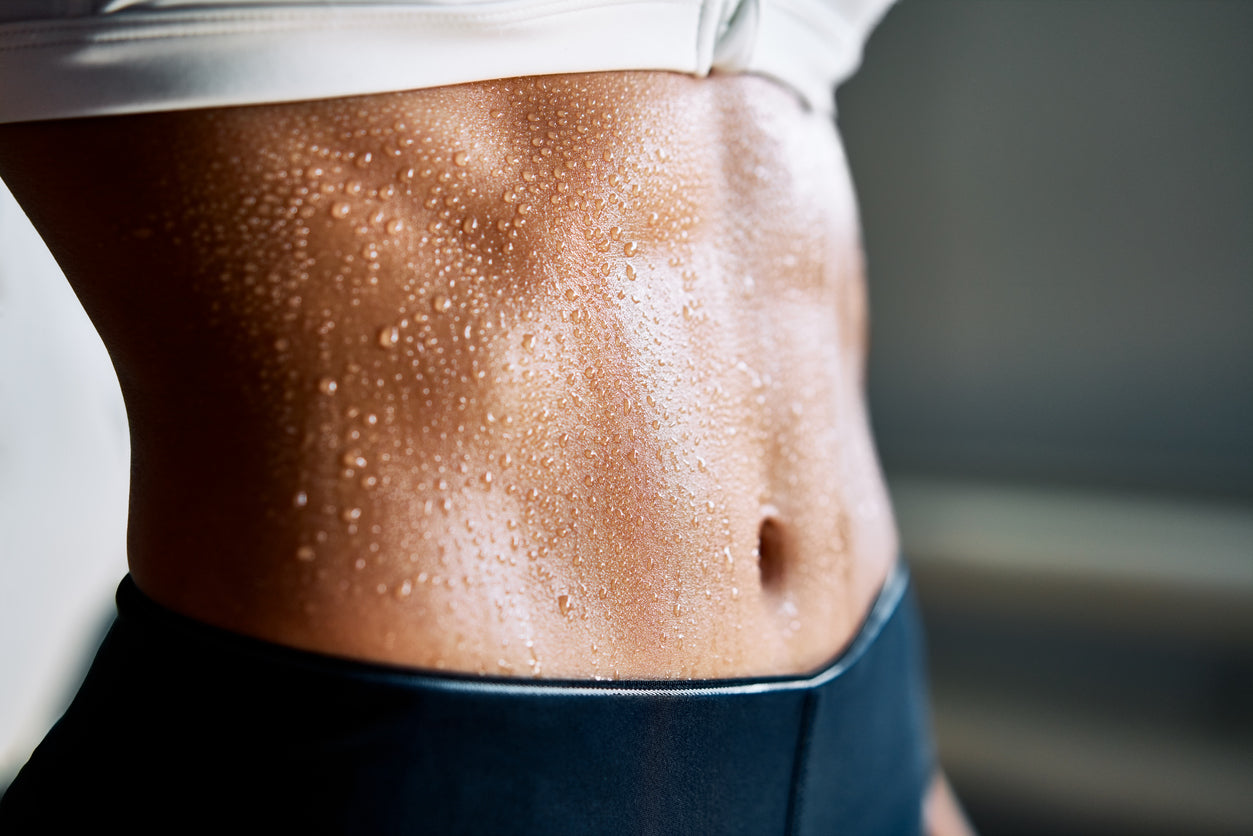Sweat Those Toxins Off

Words like sticky, hot, and dirty laundry come to mind when we think of the word sweat. If we look past the initial first impression, sweating has several detoxifying benefits.
- Detox Heavy Metals
- Bacterial Cleansing
- Release Chemicals
It might feel gross to be covered in sweat, but after a shower, your body will thank you immediately and in the long run.
Sweat & Exercise
Sweat and physical exertion go hand-in-hand. Whether it’s rearranging the house or exercising, sweating will most likely happen, and that’s normal.
Exercising leads to a handful of benefits such as:
- Energy Boost
- Improve Mood
- Promotes Good Sleep
- Maintain Healthy Weight
- Strengthens Immunity
Combine the health benefits with the detoxification aspects of sweating, and you’re a step closer to a healthier lifestyle.
Detox Heavy Metals
There are differing opinions about the detoxification of heavy metals through sweat. However, this2016 study shows us that the levels of most heavy metals were lower in people exercising regularly.
The heavy metals were found in sweat and urine, with a higher concentration being in the sweat. Sweating is a potential method for eliminating some of the heavy metals in our bodies.
Releasing Chemicals
The elimination of BPA and PCB is possible through our sweat. BPA, or bisphenol A, is an industrial chemical used to manufacture specific resins and plastics. They’ve been found in cups, toys, and numerous plastic and plastic-like materials.
Exposure to these chemicals can have adverse effects on our health, which is why they must be removed from our system. A 2011 study. Sweating is effective for the removal of BPAs.
PCBs, or polychlorinated biphenyls, are man-made organic chemicals. PCBs have been shown to demonstrate several adverse health effects. ISRN Toxicology posted an article showing us that sweat can play a role in eliminating certain polychlorinated biphenyls from the body.
Bacterial Cleansing2015 review talks about the glycoproteins in our sweat. Glycoproteins bind to bacteria and help remove them from our bodies. Our body also releases bacteria through urine and feces. When we’re sick, we’re told to stay hydrated, and that’s because our body is working so hard to push all of the bad out.
What is Sweat?Sweat is primarily made up of water with tiny amounts of chemicals, including ammonia, salts, sugar, and urea.
We sweat when we exercise, have a fever, and sometimes when we’re anxious.
Sweating is also how the body cools itself off. As our internal temperature rises, our sweat glands naturally release water to the surface of our skin. The air around us allows the sweat to evaporate, which cools our skin and the blood beneath our skin.
Sweating too much?
Sweating more than your body requires for temperature regulation is called hyperhidrosis. Hyperhidrosis can be caused by several conditions such as low blood sugar, thyroid disorders, and nervous system disorders.
Not sweating enough?
If you don’t sweat enough, it could be a sign of anhidrosis. Anhidrosis can lead to the life-threatening case of overheating. The condition can be caused by several issues, including dehydration, burns, skin disorders, and some nerve disorders.
Why does sweat stink?
Sweat tends to get such a bad wrap for smelling. However, it’s not the sweat that smells; it’s everything else mixing with it. Things like bacteria that live on our skin or hormone secretions from our armpits mix with our sweat, creating an odor.
Final Words
Sweating is a natural function, and it’s healthy. Sweating helps maintain our body temperature, but it offers much more than that. Remember, it’s essential to rehydrate and replenish what was lost whenever you sweat.


